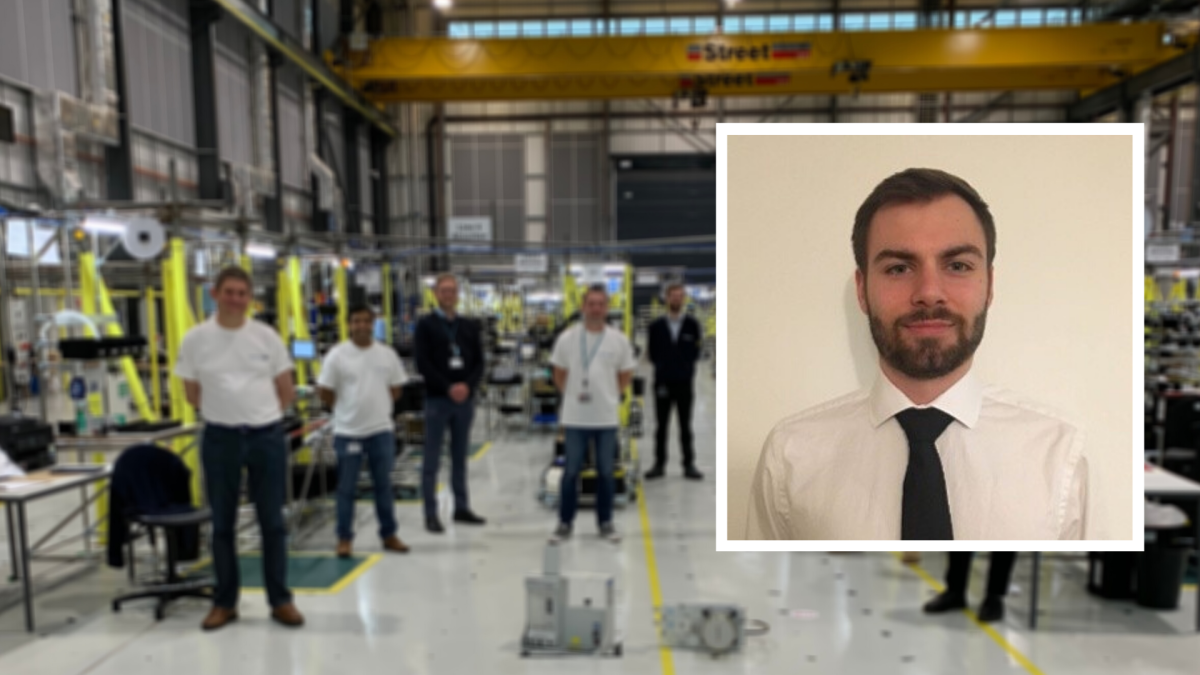Meet the Covid fighting UoM graduate making engineering history

For Matt Danby, the last two years have been a rollercoaster ride. The 24-year-old former Manchester student, who graduated in 2018 with an engineering masters, was unsure what to do when his four-year degree came to an end.
Since then, he has joined a global company, played a leading role working on brand new products, made engineering history by helping to fight coronavirus, moved into his own place, and even secured a promotion.
“I think it depends on what kind of person you are, I’m quite happy to get stuck in and go into the detail if I need to,” Danby says, when we chat via Zoom. He now works for Siemens, the manufacturing giant, and it’s clear that he loves what he does.
It started when he was offered work experience by the firm in summer 2018, and tasked with bringing a new product to life during a three-month-long placement. He was then invited to join the company as a production engineer.
“It was a great opportunity, and it shows that work experience does matter, even if it is just for the summer,” Danby tells me. “You can get a real benefit from that, and it helps to show your potential to people.”
One of the youngest in his team, he started at Siemens’ famous Congleton plant in Cheshire. It wasn’t long before he was given greater responsibility and more complex tasks.
But then the virus hit, and just like millions across the country, Danby and his team were sent home.
The lockdown couldn’t have come at a more awkward time for him, he had just signed the paperwork to move into his own place: “It was a few days before lockdown it all went through so it’s been interesting. I’ve waited about three months for a mattress.”
While the house-hunting might have slowed down, the work did not. Just over a week later, Danby would join a record-breaking team made up of 100 young engineers taking part in the UK’s ‘ventilator challenge’ to fight coronavirus.
The engineers, some of whom were at the very start of their careers, made history by producing a whopping 13,500 medical devices in just 12 weeks.
Most of this work started from kitchens and bedrooms across the country, and as Danby’s house was going through, he worked from his parent’s home in Stockport.
“We continued to work from home for a couple of weeks on the ventilator project, but then ended up having to go into [a plant] over in Chester to bring the project to life,” he says. “It was an amazing opportunity to work on the project, and I don’t think there will be anything like it ever again.”
Danby has now moved from his role as a production engineer into research and development as a team leader. He believes the ventilator challenge has put him in good stead to work his way up within the company.
And while he understands that some at his old university will be worried about the future, he says fellow engineers shouldn’t worry too much.
“The ventilator challenge shows that engineers are always required. Even in lockdown, production continued at Congleton because it’s deemed as a necessity. There will always be a need for engineering, even in pandemic situations, because people are needed to solve technical issues.
“When I finished university, I wasn’t one hundred per cent sure what I wanted to do. I had [my] placement at Siemens but that was organised very last minute.
“If you’d have asked me in April 2018, I wouldn’t have had a clue what I was going to do next. This shows that even a couple of months ahead, you never know what’s around the corner. Never give up.”
With the UK economy officially in recession, and prospects not looking great for many graduates, Danby’s story can offer a bit of hope amid the doom and gloom.







